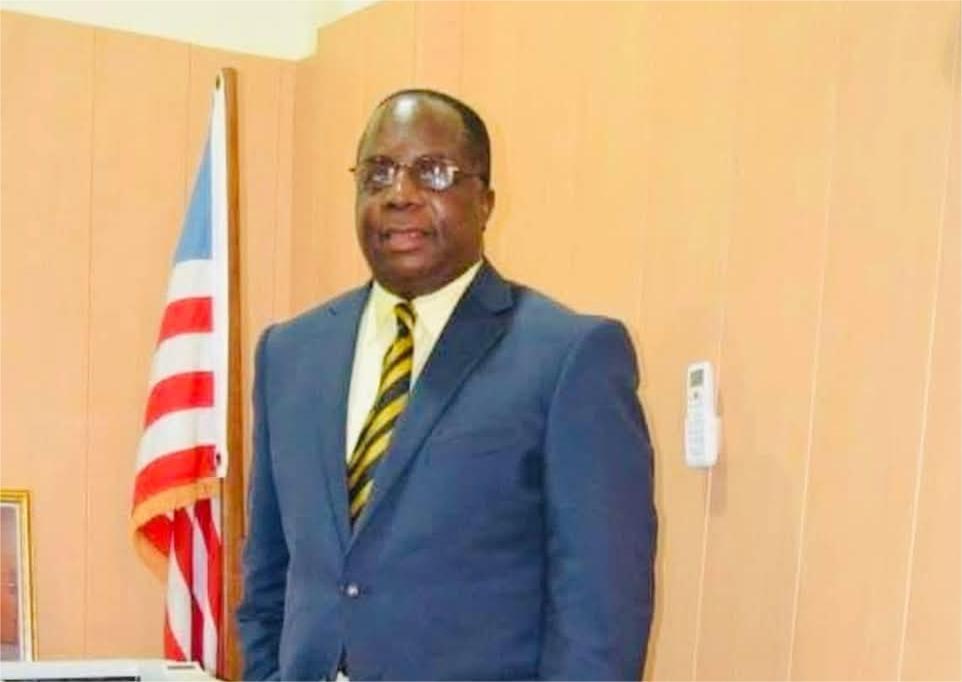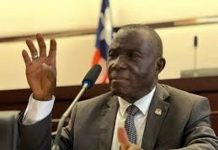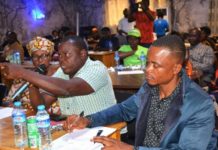By S. Zohnjaty Joe
Africa-Press – Liberia. Liberia stands at a crossroads that many developing nations confront: compelling wealth on paper, yet uneven progress in the daily lives of its people. For decades, development plans have often adhered to the rhythms of foreign aid, with donors and partners shaping priorities, timelines, and outcomes. In practice, this donor-driven model has yielded growth statistics that obscure a persistent gap between wealth and well-being. Liberia’s vast mineral endowments and a reservoir of domestic talent suggest it sits atop a fortune that could translate into tangible livelihoods. But the paradox remains: growth without development. The country has not yet learned how to convert resource rents, foreign assistance, and private investment into reliable, broadly shared gains for Liberians across health, education, infrastructure, and governance.
A new vision is needed—one that preserves prudent partnerships while placing Liberians and their aspirations at the center of policy making. The path forward is not one of retreat from the global economy but a recalibration toward a homegrown development paradigm. This approach emphasizes leaner public expenditure, smarter revenue mobilization, and a strategic harnessing of Liberia’s comparative advantages. It envisions a social contract in which wealth translates into livelihoods and shared prosperity, underwritten by accountable institutions, transparent governance, and active citizen participation.
The diagnosis is clear. First, donor-driven priorities have often overshadowed domestic needs, constraining the policy space for transformative reforms. When planning begins with what external partners are willing to fund, rather than with what Liberians identify as essential for resilience, fiscal fragility follows. Budgets become contingent on volatile grant cycles, and accountability shifts away from citizens toward funding partners. The result is an economy vulnerable to shocks, with limited room to pursue long-term reforms that may not attract immediate donor attention. The consequence is a creeping misalignment between public priorities and public needs, which in turn undermines trust in government and the legitimacy of reform efforts.
Second, wealth and well-being remain divorced in many communities. Mineral wealth sits alongside persistent poverty; capital may accumulate on balance sheets even as households struggle to meet basic needs. Underutilized domestic capacities—ranging from skilled labor to local entrepreneurship—are too often siphoned into external channels rather than mobilized to build enduring domestic value chains. This siphoning diminishes the potential multiplier effects of growth and weakens the domestic capacity to respond to shocks. Third, there is a perceptual gap: foreign arrivals and foreign-funded projects can produce rapid, visible gains, but these gains can fail to translate into broad-based development that improves daily life for ordinary Liberians.
To break this impasse, Liberia must chart a vision for domestic transformation grounded in realistic reforms and measurable outcomes. The proposed path emphasizes sustainability, inclusivity, and resilience. It calls for leaner public expenditure that prioritizes essential services, smarter revenue mobilization that expands domestic resources without stifling growth, and the strategic development of Liberia’s human capital and natural endowments. Education, health, and infrastructure must be modernized and made accessible to all, with accountability mechanisms that ensure results. In this framework, a social contract emerges in which prosperity is defined not by a few headline indicators but by tangible improvements in people’s lives—better schools, healthier families, safer neighborhoods, reliable roads, and a public sector that serves with integrity.
A practical policy roadmap accompanies this vision. On the fiscal front, reform must be disciplined and merit-based. Expenditure rationalization should accompany a robust civil service reform agenda that raises wages, strengthens health benefits, and supports ongoing professional development. Public finances should be managed with centralized procurement and asset management to reduce leakage and waste, and travel and security costs should be regulated to prevent discretionary spend from undermining core programs. The objective is not austerity for its own sake, but a smarter allocation of limited resources toward outcomes that endure beyond political cycles.
Revenue diversification must anchor this transformation. Modernizing immigration-related revenue, improving border controls, and establishing residency programs should channel lawful migration, tourism, and skilled labor into productive channels that contribute to public revenue. Tax reforms should broaden the base, simplify administration, and reduce exemptions that erode credibility and compliance. Public-private partnerships can play a crucial role in expanding infrastructure and services, but they must be designed with transparent governance structures, clear risk sharing, and strong accountability to safeguard the public interest.
Liberia’s natural resource wealth demands a governance framework that emphasizes local value addition, transparency, and resilience against price shocks. In oil and gas, the emphasis should be on local content, robust fiscal transparency, and environmental safeguards, with a deliberate strategy for skills transfer and targeted local hiring. In minerals, rigorous geological assessments led by locally trained professionals should guide negotiations and policy development, with a preference for domestic value-added processing where feasible. Building a cadre of Liberian geologists and engineers is essential to credible resource assessments and favorable contract negotiations. Sovereign-wealth-like mechanisms deserve careful exploration as a way to convert resource rents into long-term savings and development funding that can weather commodity downturns and provide for future generations.
Infrastructure and service delivery must anchor inclusive growth. Education policy should prioritize teacher training, curriculum modernization, and STEM education, with financing conditioned on measurable learning outcomes and accountability. Health systems require a robust primary-care network and a clear trajectory toward universal health coverage, anchored in preventive care and efficient service delivery. Transportation and logistics should focus on climate-resilient, cost-effective road networks, port improvements, and airport facilities aligned with domestic trade and export readiness. The digital economy demands accelerated broadband expansion, digital literacy, and streamlined e-government services to attract private investment and unlock new service opportunities.
Institutional reform is the backbone of a credible development project. Transparent budgeting, procurement, and performance reporting must be standard practice, with civil society and the media empowered to hold public institutions accountable. Anti-corruption measures require rigorous enforcement, whistleblower protections, and robust conflict-of-interest rules. Local empowerment should accompany decentralization of planning and resource allocation to counties and municipalities, while maintaining national standards to ensure equity and cohesion across the country.
The questions at the heart of this agenda are practical and urgent: How can Liberia convert its wealth into well-being for all? How can the country strike a balance between responsible external partnerships and a strong commitment to domestic resilience? How can every dollar, every barrel of resource, and every hour of labor contribute to a more prosperous and just Liberia? The answers lie in disciplined reform, transparent governance, and a shared commitment to translating natural wealth into daily gains for Liberians.
The road ahead is not a retreat from the world but a recalibration toward sustainable, inclusive development led by Liberians themselves. By tightening budgets, broadening domestic revenue, and maximizing the value of natural resources through skilled local leadership, Liberia can reduce its dependence on donors while expanding opportunity for every citizen. This requires courage, clarity, and collective action—citizens, civil society, business, and government—working in concert toward a Liberia that is prosperous, resilient, and proudly Liberian.
Source: Liberia news The New Dawn Liberia
For More News And Analysis About Liberia Follow Africa-Press






